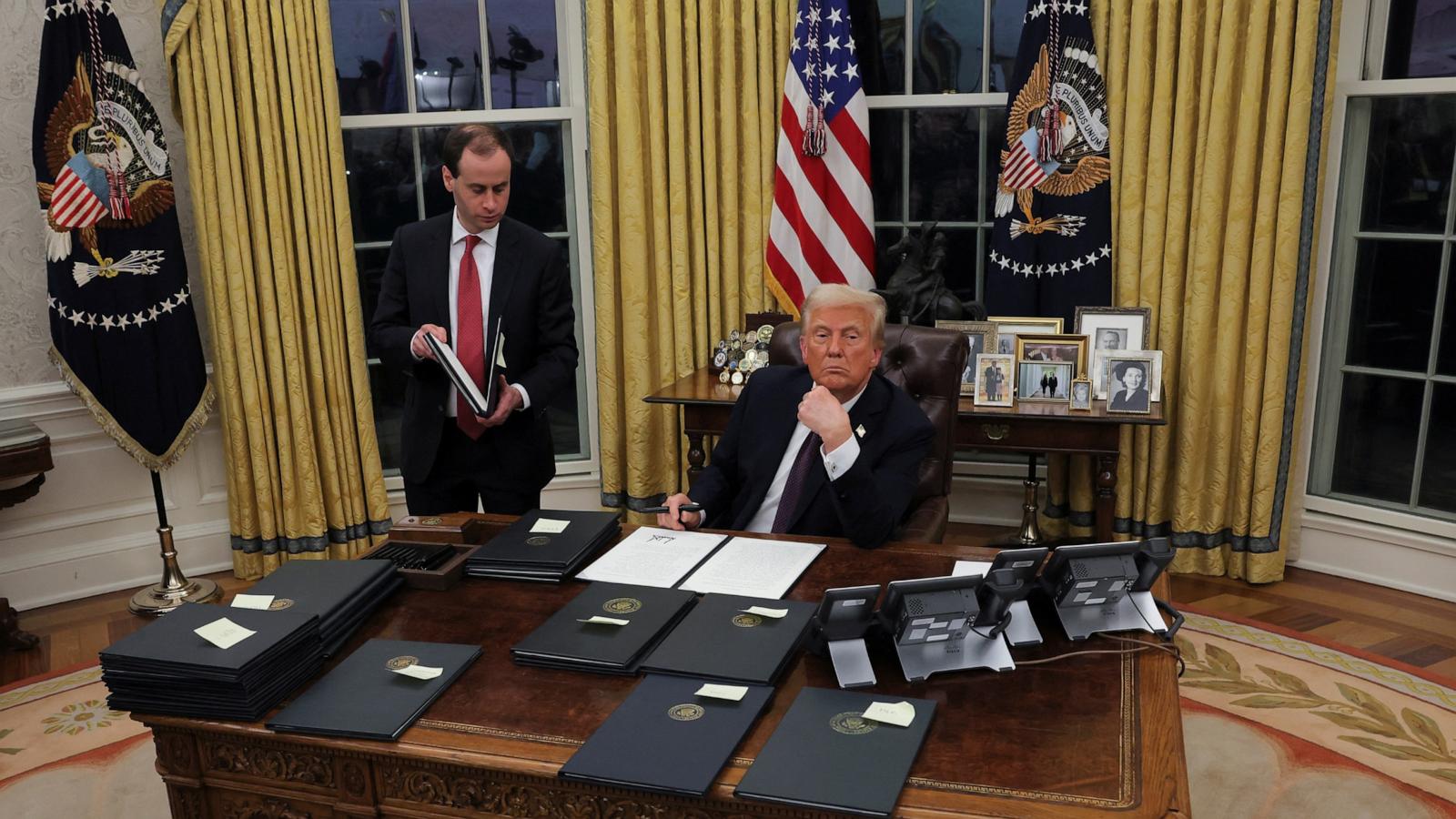With half the country firmly behind him and with the blessing of America’s tech billionaires, President Donald Trump is moving at a breakneck pace to try to remake America.
Using sweeping declarations of presidential power that go well beyond those in his first term, Trump has promised to upend how the federal government views the rights of migrants and trans people.
The Gulf of Mexico will become the “Gulf of America,” he says. Alaska’s Denali mountain peak will once again honor President William McKinley, who never visited but favored tariffs like Trump. And the 1798 law used to justify Japanese internment camps during World War II will be invoked, Trump promises — this time, to go after foreign-born criminals, he said.

Trump ordered an end to birthright citizenship too, even as many legal experts said that wasn’t actually possible and opponents sued. But Trump insisted the 14th Amendment of the Constitution — which grants citizenship to any person born inside the United States — should now take into account the legal status of a person’s birth parents.
In yet another executive order, Trump suggested security clearances should be pulled from more than two dozen retired government intelligence officials who, just weeks before the 2020 election, challenged Republican narratives about emails purportedly found on Hunter Biden’s laptop, calling them possible Russian propaganda. And TikTok was suddenly resurrected when Trump said its Chinese-based parent company could ignore for now a bipartisan law passed by Congress requiring it to sell the app or shut it down.

To the public, Trump’s unilateral flash of executive power might seem extraordinary. But history suggests it also could be short-lived without Congress and the courts behind it as opposition groups ready lawsuits, experts say.
Marsha Barrett, a political historian and professor at the University of Illinois at Urbana-Champaign, said there’s certainly precedent for presidents forcing change when Congress won’t act, like when President Harry Truman ordered to desegregate the military.
“But relying so heavily on that power on the first day could be interpreted as an effort to demonstrate that the executive branch has eclipsed the congressional branch,” Barrett said. “While executive orders are undeniably an expression of sweeping presidential power, I think its application has a hollowness in comparison to presidents who executed much of their platform through Congress.”
In other words, without getting Congress firmly on board first, everything Trump declared on his first day in office can be undone just as quickly four years from now when he leaves office. There’s also the question of how much of an impact it would have on government services Americans rely on.
“The proof is in the pudding and it is worth paying real attention to whether and how they execute on this vision,” said Max Stier, founder and CEO of the nonpartisan Partnership for Public Service.
The federal government needs “constructive reform,” Stier added, “not choices that will further erode the capabilities of our public institutions.”

Eight years ago, many of Trump’s executive orders would have been likely been rebuked as “un-American” by critics like the late Arizona Republican Sen. John McCain and decried by Democratic governors. But with the Republican party now firmly remade in his image, Trump arrived in Washington this week feted as any other politician might.

Tech CEOs, including Apple’s Tim Cook, Meta’s Mark Zuckerberg and Amazon’s Jeff Bezos, joined the new president his inauguration ceremony in the Capitol Rotunda. Elon Musk, the billionaire who heads Tesla, SpaceX and the social media site X, is said to be given an all-access pass to the White House as one of Trump’s closest informal advisers.
Also on Trump’s side is a Republican-controlled House and Senate, as well as a U.S. Supreme Court with several of his own hand-picked justices who have shown they are willing to side with him in many instances.

Democratic governors running states that swung behind Trump in the election also seemed to temper their criticism, at least for now.
“I stand ready to work with the Trump Administration to continue our progress here in Pennsylvania,” said Gov. Josh Shapiro, once a top contender to serve in a Harris administration but is now up for re-election next year.
“At the same time, as I have done throughout my career, I will always defend our fundamental freedoms and stand up to efforts to erode them,” he added, while also noting there is “more that unites us as Americans than divides us.”
Nationwide, Trump won 49.9% of the popular vote, compared to Vice President Kamala Harris’s 48.4%, according to final election returns. That means the new president will govern a country deeply divided on his leadership with many Americans wary, ambivalent or directly opposed to his final term as president.
Soon after Trump’s swearing in, liberal advocacy groups like Public Citizen, ACLU and Democracy Forward began filing lawsuits.
To Trump though, his return to Washington signaled a new “golden age” as he insisted much of the country was solidly behind him.
“Nothing will stand in our way because we are Americans. The future is ours and our golden age has just begun,” he said.
ABC News: Top Stories
Read the full article .


